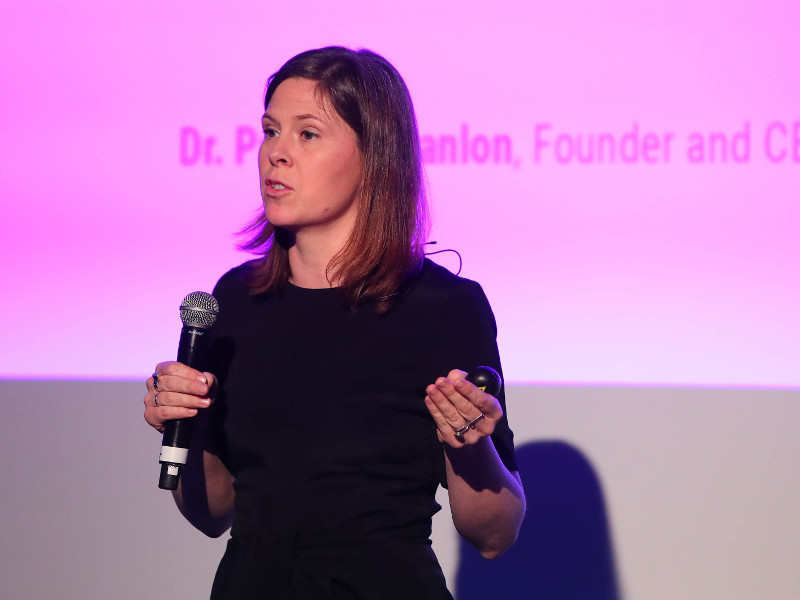John Phelan of the Halo Business Angel Network (HBAN) talks to John Kennedy about the rise and rise of angel investment in Ireland but also how entrepreneurship needs to be understood at all levels of Irish society.
It is pre-Budget time in Ireland and all across the land lobbyists and campaigners are bombarding ministers with pre-Budget submissions on all manner of causes on behalf of all segments of Irish society. From an entrepreneurial standpoint, successive Budgets have missed the blindingly obvious: that our tax rules and supports for entrepreneurs are out of whack and are not future-proofed for the challenges that most likely will emerge; especially in a post-Brexit environment.
Serious misses include failure to overhaul Capital Gains Tax sufficiently to enable a culture where successful entrepreneurs will invest in other Irish entrepreneurs, creating a share options culture so small firms have a fighting chance to retain key workers at a time of almost full employment, and creating a mechanism to inspire people to invest in companies at a seed stage.
“I think we are going to start missing out on a culture of entrepreneurship and risk-taking in this country because the policies do not promote or encourage entrepreneurship or investment in entrepreneurs by those who have already been successful”
At the coalface of many of these issues is John Phelan, national director of the Halo Business Angels Network (HBAN) which organises consortia of angel investors to invest in young, promising Irish firms.
“I hate to say it but currently the Irish Government does not have the tax policies that promote or incentivise private investors to back high-risk companies and we don’t have a functioning EIIS (Employment Incentive and Investment Scheme) that is fit-for-purpose),” Phelan said.
Phelan heads up a network of almost 700 angel investors across Ireland who fill the gap in seed funding in a market with declining levels of venture capital investment and where the EIIS that used to be known as the “friends and family” round compares harshly with the far more effective SEIS (Seed Enterprise Investment Scheme (SEIS) in the UK.
The pivotal role of angel investors
The role of angel investors – often seasoned business people who have made some money and relish the opportunity to invest in and offer guidance to younger companies – is often overlooked in Irish society and in the business pages. But the role they play has been substantial.
Angel investment has enabled rising medtech companies like CroíValveto raise €3.2m, salon software firm Phorest to raise €20m and agritech player Hexafly to raise €1.1m.
Earlier this year HBAN kicked off a campaign to recruit 75 new angel investors with €15m to invest in start-ups.
“The average investment size by our angels is getting close to the €25,000 mark now, which is consistent with the US (around $20,000) and Europe (€25,000).”
Coordinating a shifting sea of almost 700 investors can sometimes be like herding cats, Phelan admits, but prefers to describe the surge in activity and the role they playing in backing young companies as “planned momentum.”
He explained: “There can be quite a body of work involved in creating a mechanism that can see on average 48 investors back a young company because you also have to create conditions for follow-on rounds and we need to profile our investors to ensure they have the appetite to back the company. The numbers are constantly changing but on average investors will invest €25,000 in six or seven companies and they also provide time to help those companies to grow and eventually get to an exit. But it is constantly about getting new blood in.”
Vetting potential investors is key and Phelan describes it a bit like portfolio management. “You cannot go beyond 5-10pc of your assets in this high-risk category, you don’t go beyond that.”
Choosing angel investors
I ask Phelan if start-ups in Ireland court the angel investment community in Ireland or is it a case of having to educate start-ups about what angel investment is all about versus other forms of funding like venture or crowd funding.
“If you look at the crowdfunding side, a lot of companies get a lot of cash out of that and my view is go for it. If you can get a valuation at the price some of them get, that’s great. The tricky bit is getting the next round if you are looking for an uplift in your valuation you may or may not get it.
“What we would say is when you join HBAN and you go into a syndicate meeting, there are typically somewhere between 15 and 40 people around a table. If you are getting pitched from five companies and you really like one as an investor, but don’t really understand the sector so then what happens is someone from around the table would say ‘I come from that sector and I understand exactly what problem they are solving, it’s a big problem and have they the skills to execute’.
“The difference is getting that deep domain knowledge from an investor who then brings with them other investors and more cash.”
But what about the perception of angel investors and that form of investing?
“We have definitely matured in the last seven or eight years. We’ve become far more sophisticated, but along with sophistication it becomes more risk-averse which means that five or six years ago companies would have been able to go ‘we are pre-revenue, we have a valuation of this and we want to achieve this.’ But now what ends up happening is a lot of our network would go ‘that’s great, can you go away and build that product and then we’ll talk money?’ Because the capital required to build companies has reduced in the last five years quite significantly it is now a case of why don’t you have it built and then bring it to market and validate that it does exactly what it says on the tin but also commercially prove that people want to pay for it.
“We are seeing that in a lot of places and I think that that piece of the equation is moving people up the value chain in terms of investors are getting more risk-averse. That is the trend we are seeing in the US and here. We have very few venture capital funds in Ireland and the expectation is that the angel investors will fill the seed round gap when the companies are at pre-revenue and at high risk. But the reality is angel investors are becoming more seasoned and stringent, but it’s all for the good.”
A model for entrepreneurial culture
Speaking of the greater good, Phelan believes that culturally, Ireland still has to develop a national appetite for entrepreneurship. But part of the problem is Government is often led by an economic policy derived from politics rather than economics.
“We need economic policy that is driven by the need to create an economic impact. For example, the UK SEIS is far superior to the Irish version, the EIIS. What is happening is Irish companies are going to the UK to get funding, putting the risk and the reward in the hands of UK investors. Great, it works, but that’s not the way it is supposed to be.
“We have a long way to go to truly incentivise entrepreneurship in Ireland.
“The multinational space is well catered for and that’s because it delivers in large volumes. But if we get a shock to the system and the multinationals aren’t creating the same numbers of jobs where will you get people with the risk appetite?”
Phelan warns that with Brexit approaching and the EU taking a big interest in Ireland’s corporation tax rate, a strong entrepreneurial base will help the country deal with future economic shocks.
“I think we are going to start missing out on a culture of entrepreneurship and risk-taking in this country because the policies do not promote or encourage entrepreneurship or investment in entrepreneurs by those who have already been successful.
“It is great that Ireland has the talent that international companies want to invest in, but we also need our own visionaries to emerge and to go and create global companies. If we don’t build a policy that supports a culture of entrepreneurship, then we are going to lose that opportunity.”
Click here to take your business to the next level
Written by John Kennedy (john.kennedy3@boi.com)
Published: 26 August, 2019







